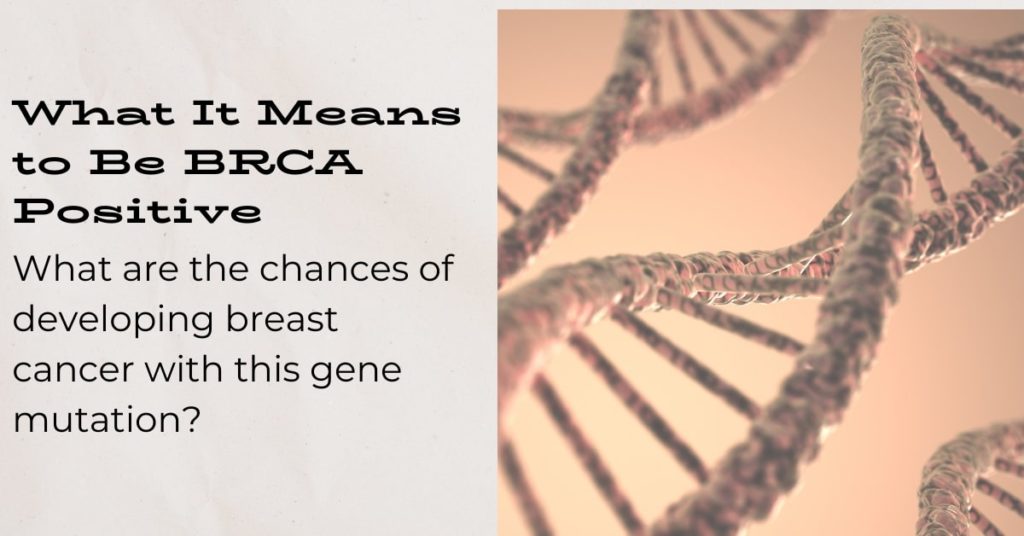Everyone is born with BRCA1 and BRCA 2 genes. They are examples of tumor suppressor genes that fight against cancer formation. When working normally, they allow the body to repair damaged DNA and prevent tumors from growing. It’s been shown that women with mutations in these genes have a higher risk of developing ovarian or breast cancer. So, it’s a good idea to stay informed on what to do if you BRCA positive.
Who should get tested?
Most women aren’t advised to get tested for BRCA mutations, but if you have concerns, you should talk to your doctor. There are a few signs that put you in a higher risk category, so testing is usually only done if one or many of these are true for you:
- You have had breast cancer before
- You have a relative with a BRCA mutation
- You have a family member who has had breast cancer
- There have been multiple cases of cancer in your family
- There have been cases of rare cancer in your family; here are just some examples
- You’re of Ashkenazi Jewish ancestry (1 in 40 Ashkenazi Jewish women carry a BRCA mutation)
If your doctor determines that a test would be useful knowledge, all that is needed is a blood or saliva sample to spot a BRCA mutation. Before and after your test, you’ll meet with a genetic counselor who can clarify what your results mean.
What does it mean to be “BRCA positive”?
When there is a mutation found in a BRCA gene, it will show up on the test as a positive result. It may also state that the variant is “pathogenic” or “likely pathogenic”. It’s important to realize that even with a positive result, it doesn’t mean for certain that you’ll be diagnosed with cancer at some point. While only 1 in 400 people carry mutations in either of these two genes, those who have it have a higher risk of developing these cancers:
- Ovarian cancer
- Prostate cancer
- Pancreatic cancer
- Breast cancer
Women who are BRCA positive have a 45-85% chance of developing breast cancer within their lifetime! Though these are worrying statistics, keep in mind that a solid early detection plan is an incredibly powerful tool. It’s normal not to know how to feel or what to do if you are BRCA positive. Depending on your doctor, they may order yearly screenings from a younger age. Mammograms, ultrasound, and MRI scans may all be more frequent for BRCA-positive women. You might be prescribed a breast cancer-preventing drug like Tamoxifen.
Some women choose to get preventative double mastectomies to reduce the risk by 90%. Some choose to remove their ovaries and fallopian tubes to reduce the risk of both ovarian and breast cancers. Any major changes to your body should be thoroughly discussed with a genetic counselor.
Lastly, if you are positive, the child has a 50% chance of inheriting the mutated BRCA gene. Full siblings of a BRCA-positive person have a 50% chance of having it as well.
What to know if you’ve already had breast cancer
If you’ve already had breast cancer, you may be encouraged by your doctor to get genetically tested. l. Recurring cancer is more likely to happen in BRCA-positive women. A certain form of breast cancer called triple negative breast cancer has been linked directly to mutations in the BRCA1 gene. It doesn’t respond well to hormone therapy, but chemotherapy has been shown to be more effective.
Knowing your genetic makeup may just prove to be a crucial part of early detection and treatment. Yet, remember that only 3% of all women who’ve experienced breast cancer have inherited gene mutations of BRCA1 or BRCA2. So, while there is still a high likelihood that you do not carry mutated genes, you can at least inform others on what to do if you are BRCA positive. Every step towards fighting breast cancer in any way possible is a step in the right direction!
